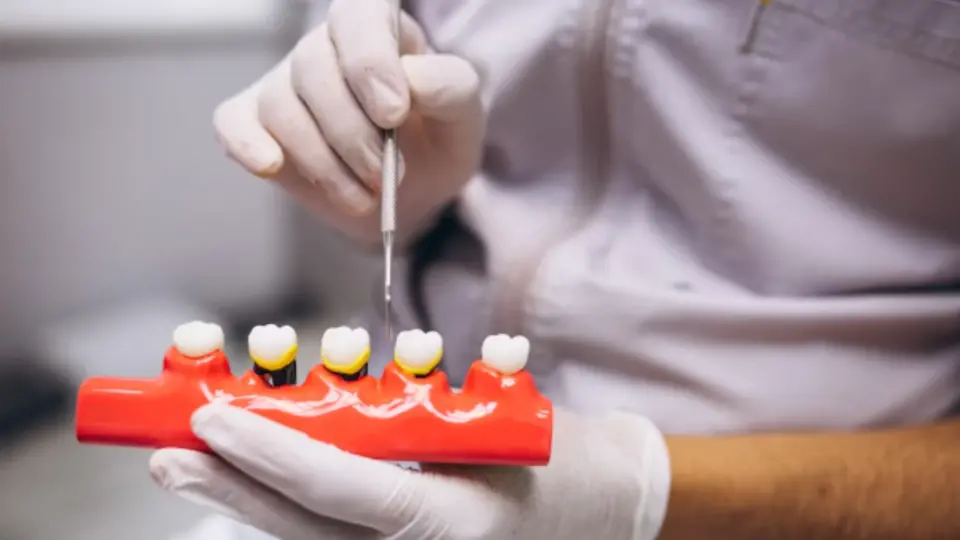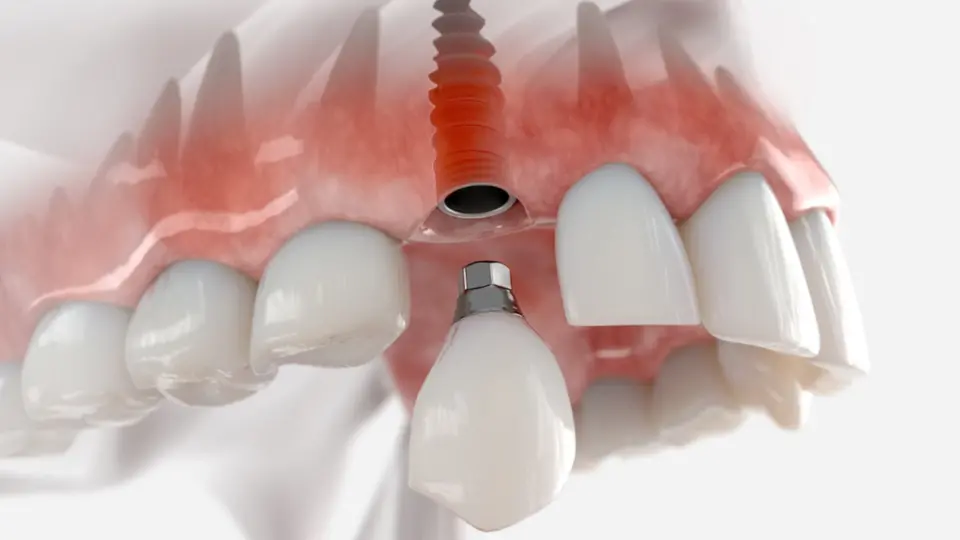A bright, healthy smile starts with the right care at home. At-home teeth cleaning is the foundation of good oral hygiene, helping to keep your teeth strong, your gums healthy, and your breath fresh.
While regular dental checkups are essential, maintaining your smile between visits is just as important. Brushing twice a day, flossing regularly, and using mouthwash are simple habits that can go a long way in preventing cavities, plaque buildup, and gum disease.
But there’s more to it—knowing the best techniques and tools can make a real difference. In this guide, we’ll cover the best practices for keeping your smile at its best, so you can confidently show it off every day.
What Are The Most Effective Methods For At-home Teeth Cleaning?
The foundation of effective at-home teeth cleaning starts with brushing, but there’s more to it than just picking up a toothbrush. Here are some of the best methods for keeping your teeth clean and healthy at home:
- Brush Twice Daily: At least twice daily brushing of your teeth is non-negotiable. It gets food particles, plaque, and germs that can cause gum disease and tooth decay gone. Be sure to use a fluoride toothpaste for added cavity protection.
- Use Proper Brushing Techniques: Proper technique is key to effective brushing. Holding your toothbrush at a 45-degree angle to your gums, move gently in circles. Steer clear of too vigorous brushing since it might erode enamel and hurt your gums.
- Floss Once Daily: Brushing alone can’t reach the areas between your teeth. That’s where flossing comes in. Flossing removes trapped food particles and plaque from hard areas to reach with a toothbrush, reducing your risk of cavities and gum disease.
- Incorporate Mouthwash: Using an antimicrobial or fluoride mouthwash can help rinse away remaining food particles and bacteria after brushing and flossing. It also freshens your breath and strengthens your teeth.
- Stay Hydrated: Especially after meals, drinking water helps clear food particles and neutralize acid generated by bacteria in your mouth. Maintaining hydration also helps avoid dry mouth, which raises your chance of dental damage.
- Limit Sugary and Acidic Foods: Foods and beverages high in sugar and acids can destroy enamel, causing cavities. While you don’t need to eliminate these, it’s best to consume them in moderation and follow up with water or a brushing session when possible.
By following these methods consistently, you’ll keep your teeth clean and minimize the chances of developing common dental problems.
How Often Should I Clean My Teeth At Home?
Consistency is key when it comes to at-home teeth cleaning. But how often should you be doing it to ensure optimal oral health?
- Brush Twice a Day: It’s widely recommended that you brush your teeth at least twice a day—once in the morning and once before bed. This helps remove plaque buildup that forms throughout the day and night. If you’re particularly concerned about dental health, consider brushing after meals, especially if you consume sugary or acidic foods.
- Floss Daily: Flossing should be done at least once a day. Ideally, this should be part of your nighttime routine to remove debris and plaque that have accumulated throughout the day.
- Use Mouthwash After Brushing: While mouthwash isn’t a replacement for brushing and flossing, using it once a day can give your teeth and gums an extra boost of cleanliness.
- Professional Cleanings Twice a Year: Even with excellent at-home care, visiting your dentist every six months for a professional cleaning and check-up is crucial. This ensures that any plaque or tartar buildup that home care can’t remove is addressed.
The more consistent you are with your at-home teeth cleaning routine, the better your chances of avoiding cavities, gum disease, and other dental issues.
Can At-home Teeth Cleaning Prevent Cavities?
Yes, at-home teeth cleaning can significantly reduce the risk of cavities, but it must be done correctly and consistently. When bacteria in the mouth produce acids that erode tooth enamel, cavities manifest in the teeth. If plaque, a sticky coating of bacteria, is not removed on a regular basis, it will eventually harden into tartar, which can only be removed by a dentist.
By brushing and flossing daily, you remove the bacteria that cause plaque and cavities. However, the following practices can boost your efforts:
- Use Fluoride Toothpaste: Fluoride strengthens tooth enamel, making it more resistant to acid attacks. Most toothpastes contain fluoride, but be sure to check the label. If your water supply doesn’t have fluoride, ask your dentist about fluoride treatments.
- Avoid Snacking Frequently: Snacking or sipping sugary drinks can increase the acidity in your mouth, leading to enamel erosion and cavities. Stick to three meals daily and limit snacks, especially those high in sugar.
- Chew Sugar-Free Gum: After meals, chewing sugar-free gum can help boost saliva output, clear food particles, and neutralize mouth acid.
Although at-home care might help avoid cavities, other factors—such as medical problems and genes—may raise your risk. Frequent dental visits can either totally avoid cavities or assist detect them early on.
What Tools Are Recommended For Effective At-home Dental Care?
The right tools can make a significant difference in the effectiveness of your at-home dental care routine. Here are the essential tools you should use:
- Soft-Bristled Toothbrush: To prevent enamel and gum damage, select a toothbrush with soft filaments, regardless of whether you use a manual or electric toothbrush. Electric toothbrushes are often recommended because they can remove more plaque than manual brushing.
- Fluoride Toothpaste: Fluoride helps strengthen enamel and prevent cavities, making it an essential ingredient in your toothpaste. Opt for a brand with the American Dental Association (ADA) seal of approval.
- Dental Floss or Water Flosser: Traditional floss is highly effective, but a water flosser is a great alternative if you find it challenging to use. It uses water to remove plaque and food particles between teeth and along the gumline.
- Mouthwash: Adding an antimicrobial to your routine can help kill bacteria, reduce plaque, and freshen your breath. For extra cavity protection, be sure you pick a mouthwash with fluoride.
- Tongue Scraper: A tongue scraper helps remove bacteria from the surface of your tongue, which can improve oral hygiene and reduce bad breath.
- Interdental Brushes: If you have braces or wide spaces between your teeth, interdental brushes are great for cleaning areas that standard floss may not reach.
With the right tools and a consistent routine, your at-home dental care can effectively complement professional cleanings and ensure a healthier, brighter smile.
Maintaining your teeth at home doesn’t need to be complicated. With simple, consistent practices and the right tools, you can protect oral health and brighten your smile for years. Professional cleanings are essential, so be sure to schedule regular check-ups with your dentist to catch any issues early on.
How Palmetto Family and Cosmetic Dentistry Can Benefit You
At Palmetto Family and Cosmetic Dentistry, we believe that your oral health is a cornerstone of your overall well-being. Our team is dedicated to providing personalized dental care that suits your unique needs. Whether you’re looking for routine cleanings or more advanced cosmetic procedures, our comprehensive services are designed to keep your smile healthy and radiant.
We utilize the latest technology and techniques to ensure efficient, comfortable treatments. Our preventative care services, including regular check-ups, cleanings, and fluoride treatments, help protect you from cavities and gum disease. Should you want cosmetic enhancements, we provide dental implants, veneers, and teeth whitening to accentuate your smile.
Our commitment to patient education means we’ll provide the tools and guidance needed for effective at-home care. We focus on creating a friendly, comfortable environment, ensuring that every visit leaves you confident about your dental health.
FAQs About Our Service Costs at Palmetto Family and Cosmetic Dentistry
1. How much does a routine dental cleaning cost?
Our routine dental cleanings typically cost $75 to $150, depending on your teeth and gums’ specific needs. This service includes professional plaque removal, teeth polishing, and an oral health assessment.
2. What is the cost of teeth whitening?
Professional teeth whitening at our office ranges from $200 to $500, depending on the desired results and the type of treatment you choose. We offer in-office whitening for quick results and take-home kits for your convenience.
3. How much do dental implants cost?
Dental implants usually cost $3,000 to $5,000 per tooth, including the implant, abutment, and crown. The cost could change based on the complexity of the case and whether more operations, like bone grafting, are needed.
4. Is financing available for more expensive treatments?
Indeed, we provide financing options and flexible payment schedules to guarantee that everyone may afford great dental treatment. Our staff will work with you to find a solution for your budget.
Discover The Palmetto Difference—Book Your Appointment Today!
At Palmetto Family and Cosmetic Dentistry, we provide top-notch dental care tailored to your needs. Our staff is here to assist you whether you need a regular cleaning or are thinking about ways to improve the appearance of your smile. Contact us right now to set up an appointment and enjoy a level of dental care that puts your comfort and health first.



